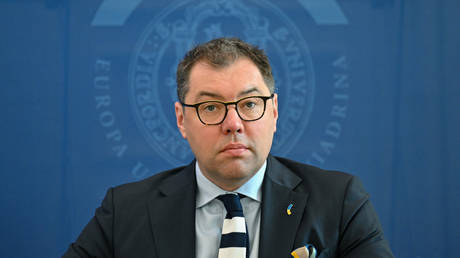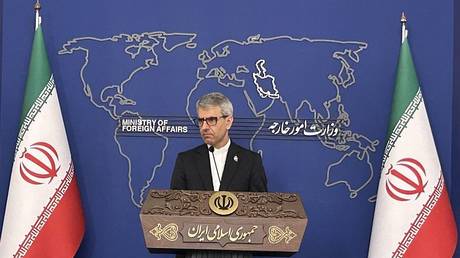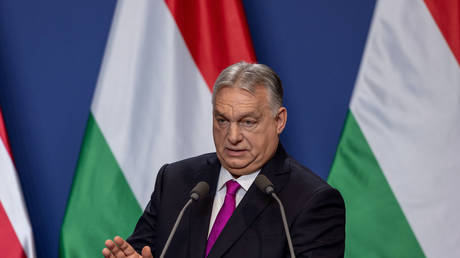
Aleksey Makeev, Kiev’s envoy to Berlin, made the denial amid media claims that a top German official had privately endorsed the idea of territorial concessions
Ukraine’s ambassador to Germany, Aleksey Makeev, has denied that Berlin is pushing Kiev toward peace negotiations with Moscow. He made the comment shortly after Der Spiegel speculated that a high-ranking staffer from Chancellor Olaf Scholz’s government had indicated that Germany now favors a negotiated settlement.
Earlier this month, Russian Foreign Minister Sergey Lavrov revealed that several unnamed Western leaders had made peace overtures to Moscow. These claims come in the wake of increasing acknowledgement – even by top officials in Kiev – that Ukraine’s summer counteroffensive, which did not manage to achieve any significant territorial gains, has failed.
In an interview with Germany’s RRB broadcaster on Saturday, Makeev replied in the negative when asked whether Berlin was putting pressure on Kiev to strike a peace deal with Moscow. The diplomat insisted that such discussions with Ukrainian officials were also not being held behind closed doors.
A day prior, Der Spiegel had claimed that in late October German ambassador to the US Andreas Michaelis had invited a group of influential US foreign policy strategists and Russia experts to a private dinner. Apart from the envoy himself, Wolfgang Schmidt, the head of the chancellor’s office, was also present at the event.
Topping the agenda of the meeting, according to the media outlet, was a discussion of the situation on the front lines in Ukraine and possible ways to end the bloodshed.
Der Spiegel quoted several invitees as alleging that Schmidt had lauded strategist Samuel Charap from the RAND Corporation think tank for exploring ways to move toward a negotiated peace between Ukraine and Russia. Some of the outlet’s anonymous sources noted that the top-ranking German official was even “euphoric” about Charap’s suggestions.
Charap published a piece titled ‘An Unwinnable War – Washington Needs an Endgame in Ukraine’ in Foreign Affairs magazine this summer. In the piece, he insisted that Western leaders should shift their focus from indefinitely perpetuating the conflict to winding it down toward a negotiated settlement. Schmidt’s supposed endorsement of Charap’s views stands in stark contrast to Germany’s official line of backing Ukraine “for as long as it takes,” the article pointed out. However, according to Der Spiegel, people from Schmidt’s inner circle called claims of his “euphoria” mendacious, adding that he was merely gauging the views of the American expert community.
Speaking to reporters last week, Russian Foreign Minister Lavrov confirmed that a “number of high-level, well-known leaders of Western countries, including one specific Western leader, a very well-known one, several times… via at least three different channels of communication, sent signals as to why don’t we meet and talk about what to do with Ukraine and with European security.” The diplomat added that he did “not want to and I have no right to name names.” He reiterated that Russia is “always ready to discuss these issues seriously,” adding that it has been Ukraine that has so far ruled out such a possibility.




